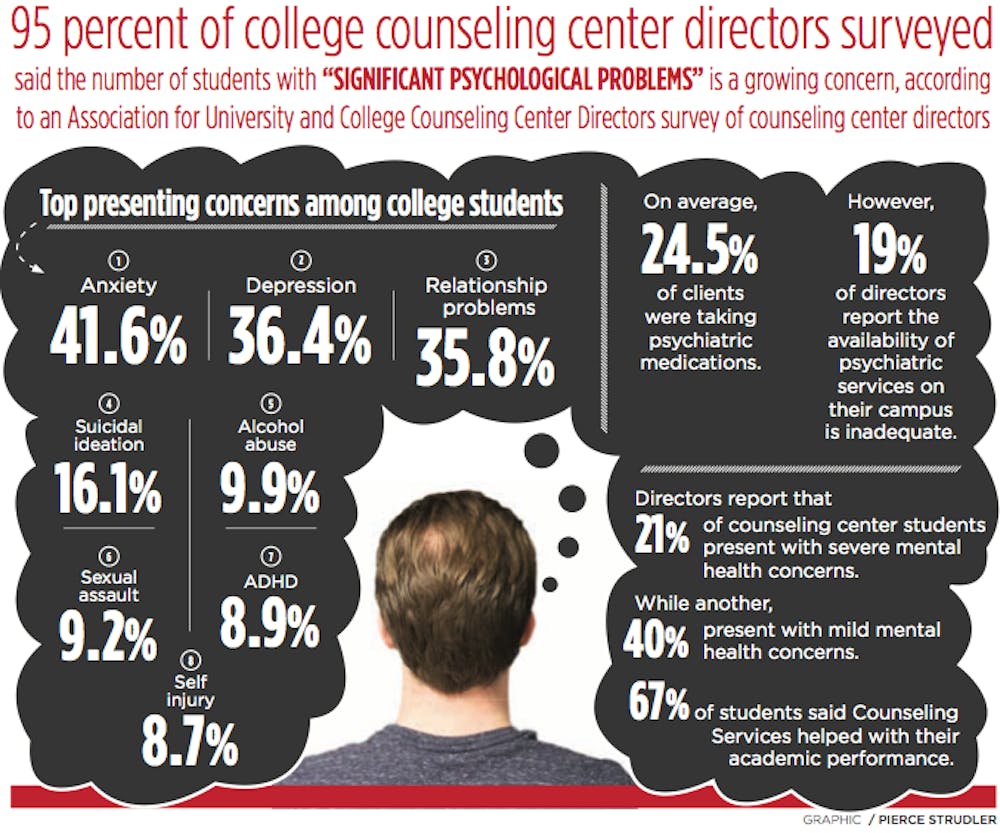As a person with mental health issues, college has been an up and down experience. But I can safely say that college has truly proven to be a healthy, safe and comfortable environment for me. I am one of the one in four young people who have a diagnosable mental health issue in college. It is a statistic that I can implement in my life, due to a good per cent of my college friends are also diagnosed with a mental illness.
My college, like most colleges and higher educational institutions, provide resources for those who have mental disorders, illnesses or are just coping with stress that range from group therapy, psychiatry and individual treatment. It seems like this is not unusual or special accommodation, yet it is estimated that some people do not feel comfortable reaching out for help. More than 45% of young adults who stopped attending college because of mental health issues did not request accommodations, and 50% of them did not access these support systems when attending the college. Overall, 40% of students in college with diagnosable mental health conditions do not seek help, and 57% of them do not request accommodations. The number one cited reason is the concern of stigma.

Saying that these institutions have these resources is essentially useless. If students won’t go through their campus to receive these accommodations and resources, they aren’t being used and no one is being helped. Instead, students self-medicate.
The stigma of opening up about mental health and illness and the easy access to substances and alcohol is an easy way for a person with mental illness to be quiet and remain in an unhealthy environment. But with the right friend group, discussing feelings, emotions, and asking consent to touch or talk about certain topics, a healthy environment can be made. We may be the “snowflake” generation who are too sensitive, are too liberal, but that is the best part of us when we discuss mental health issues. We are sensitive to each other and what we need, we give each other space, and we talk out our feelings. This is the beginning of a healthy environment, something, unfortunately, a lot of people with mental illnesses in colleges do not have this kind of environment. This stigma of getting help, and this heightened risk in self-medication, are risk factors that make being in a good environment unlikely. We can change that. If only we start to talk about this more, find a way to not be ashamed of getting help, and creating a better life.
Photo: Getty Images




